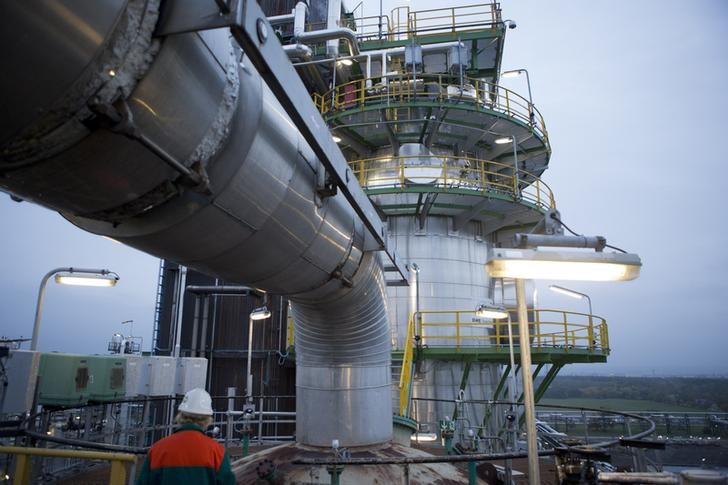Investing.com - Crude oil prices settled higher on Tuesday as sentiment on riskier assets improved but gains were slightly pared as investors braced for data expected to show U.S. crude supplies rose for the second-straight week.
On the New York Mercantile Exchange crude futures for May delivery rose 50 cents to settle at $63.51 a barrel, while on London's Intercontinental Exchange, Brent gained 0.58% to trade at $68.03 a barrel.
Crude prices gave up some of their gains heading into settlement as investor focus shifted to a duo of upcoming reports - from the American Petroleum Institute (API) due later Tuesday, and the Energy Information Administration(EIA) due Wednesday – expected to show crude supplies added to gains last week.
Crude prices had hit a session high of $63.76 a barrel as the return of risk-on sentiment boosted demand for risk assets such as oil following a more than 2% slump Monday.
The EIA is expected to report U.S. crude supplies rose by about 246,000 barrels last week, while U.S. output is expected to continue its expansion despite a fall in the number of oil rigs seen last week.
While rising U.S. output has repeatedly been highlighted as one of the main threats to the OPEC-led deal to slash global supplies, analysts cited another threat: rising Saudi-Iran tensions.
Nitesh Shah, commodities strategist at ETF Securities, said that while Saudi Arabia-Iran tensions raise the threat of supply disruptions in the short-term – supporting oil prices – it could “develop cracks in OPEC’s unity,” leading to a premature end to the OPEC-led deal to curb global crude supplies.
In November 2016, OPEC and other producers, including Russia agreed to cut output by 1.8 million barrels per day (bpd) to slash global inventories to the five year-average. The OPEC-led deal was renewed last year through 2018.
Investor concerns over rising Saudi Arabia – Iran tensions come as others warned recently that a U.S.-China trade war could lessen oil demand from emerging markets, and weigh on crude prices.
“The retaliation from China is concerning for energy markets,” Michael Loewen, a commodities strategist at Scotiabank in Toronto, said. “If a trade war occurs between these countries and it affects demand growth from emerging markets, that could be a big problem.”
